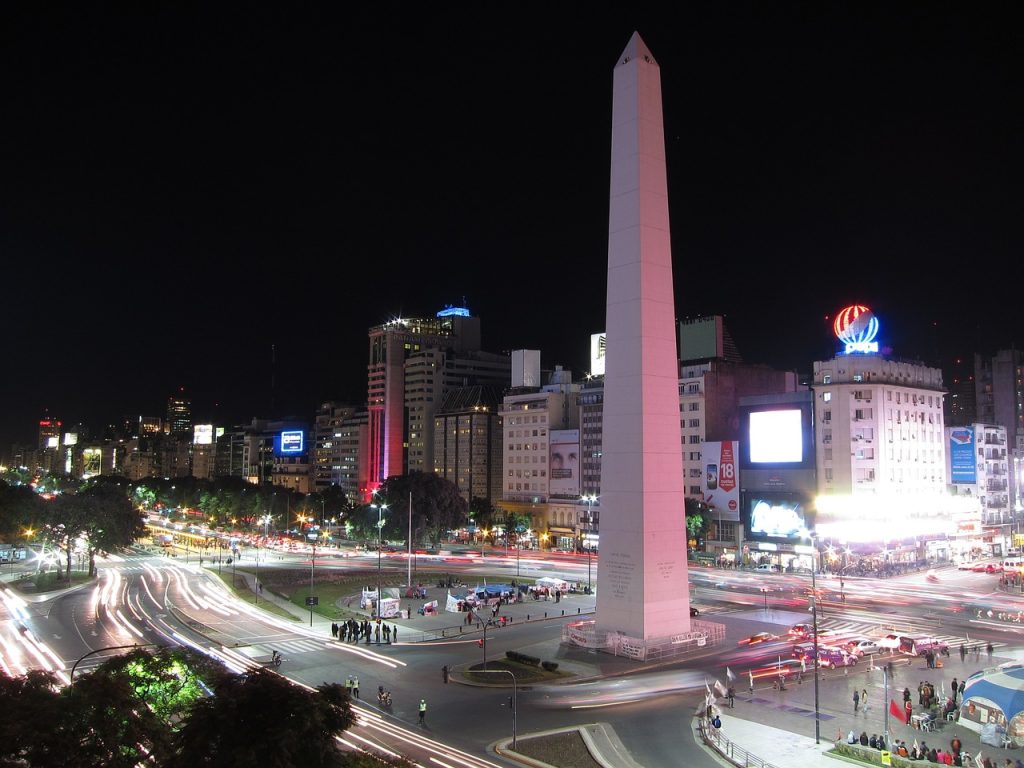Country Details
Argentina, officially known as the Argentine Republic, is a diverse and vibrant country located in South America. Here are five important facts about Argentina:
1. Tango and Cultural Heritage: Argentina is widely recognized as the birthplace of tango, a passionate and sensual dance that has become an iconic symbol of the country's cultural heritage. Tango originated in the late 19th century in the neighborhoods of Buenos Aires, and it has since gained international popularity. Argentina is also known for its rich literary and artistic traditions, producing world-renowned writers such as Jorge Luis Borges and Julio Cortázar.
2. Soccer Obsession: Like many countries in South America, Argentina has a deep passion for soccer. The sport holds a prominent place in the country's culture, and Argentinean players are highly regarded worldwide. Argentina has won the FIFA World Cup twice, in 1978 and 1986, and has produced legendary players such as Diego Maradona and Lionel Messi, who are adored by soccer fans around the globe.
3. Breathtaking Landscapes: Argentina boasts diverse and breathtaking landscapes, offering a wide range of natural wonders. From the majestic Andes Mountains in the west to the awe-inspiring Iguazu Falls in the northeast, Argentina is home to incredible sights. The country also encompasses the vast plains of the Pampas, the stunning glaciers of Patagonia, and the desolate beauty of the Atacama Desert in the northwest.
4. Gastronomic Delights: Argentina is renowned for its culinary delights, with a strong emphasis on beef and traditional grilling techniques. The country is famous for its succulent and flavorful steaks, which are often enjoyed with chimichurri sauce. Other traditional dishes include empanadas (stuffed pastries), locro (a hearty stew), and dulce de leche (a sweet caramel spread). Argentinean wines, especially Malbec, have gained international recognition for their quality and are a perfect complement to a delicious meal.
5. Historical Significance: Argentina has a rich history that encompasses indigenous cultures, Spanish colonization, and subsequent waves of immigration. The country went through significant political and social changes in the 20th century, including periods of military dictatorship and economic challenges. The memory of important figures like Eva Perón, known as Evita, and iconic places like Plaza de Mayo in Buenos Aires, serve as reminders of Argentina's historical significance and the struggles faced by its people.
Immigration Details
Immigrating to Argentina can be achieved through various pathways. Here are some of the common ways to immigrate, including the Golden Visa program, establishing a company, real estate investment, work permits, and studying:
1. Golden Visa:
- Argentina does not have a specific Golden Visa program like some other countries. However, the country offers various visa categories that may be suitable for investors, such as the Investment Visa or the Entrepreneur Visa.
- The requirements, capital investment amount, and benefits associated with these visas can vary. It is advisable to consult with Argentine authorities or seek professional advice for the most up-to-date information.
2. Establishing a Company:
- Capital requirements: To establish a company in Argentina, the capital requirements depend on the chosen legal form, such as a Sociedad de Responsabilidad Limitada (SRL) or a Sociedad Anónima (SA). The minimum capital required can vary based on the business activity and location.
- Employing locals: When establishing a company in Argentina, it may be necessary to employ local Argentine citizens. The specific requirements and employment regulations can be obtained from Argentine authorities or legal professionals.
- Residency permit: As a company owner, you can apply for a residency permit based on your business activities in Argentina.
- Timeline and fees: The timeline for establishing a company and obtaining a residency permit can vary, but it generally takes several months. The fees can include company registration costs, legal fees, and administrative charges.
3. Real Estate Investment:
- Argentina does not have a specific real estate investment program that grants residency permits directly. However, foreign investors can purchase real estate in Argentina and obtain a residency visa based on that investment.
- Residency permit: Upon purchasing eligible real estate, you can apply for a residency visa. You will need to provide documents such as proof of property ownership, financial capability, and a valid passport.
- Timeline and fees: The processing time for obtaining a residency visa through real estate investment can vary, but it generally takes several months. The fees may include property purchase costs, administrative fees, and application fees.
4. Work Permit:
- Finding a job: Securing a job offer from an Argentine employer is essential for obtaining a work permit. The employer will need to sponsor your work visa and provide necessary documentation, including an employment contract and proof of qualifications.
- Work visa and residency permit: Once you have a job offer, your employer will apply for a work visa on your behalf. Upon arrival in , you will need to undergo medical examinations and obtain a residency permit.
- Timeline and fees: The processing time for work visas and residency permits can vary, but it generally takes several weeks to a few months. The fees associated with work permits and residency permits can include visa application fees, administrative charges, and medical examination costs.
5. Study-based Immigration:
- Obtain admission: Apply and get accepted into a recognized educational institution in Argentina.
- Student visa: Once accepted, the educational institution will assist you in obtaining a student visa and necessary documentation, including proof of enrollment, financial capability, and a valid passport.
- Residency permit: Depending on the duration of your studies, you may be eligible to apply for a residency permit during your time as a student in Argentina.
- Timeline and fees: The processing time for student visas can vary, but it generally takes several weeks to a few months. The fees typically include visa application fees and other administrative charges.



Add a review